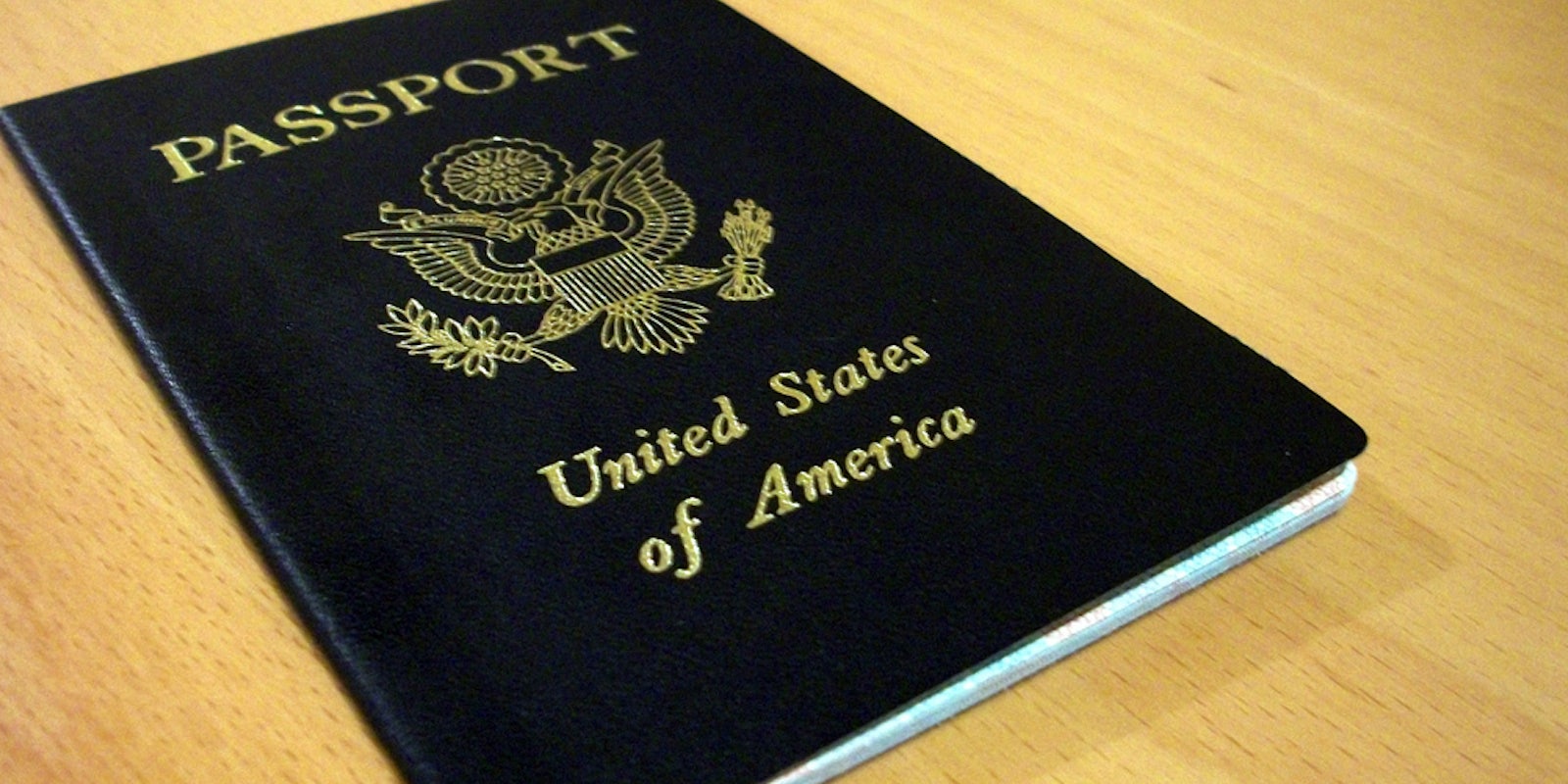Transgender women are saying their passports are being retroactively denied, and the reasons why are unclear.
In two separate viral tweets a month apart, two trans women have come forward about the sudden issues they’re having with passport renewal. Both say the paperwork they gave to the government before had always been sufficient, and they were given no warning that new or different documentation would be needed.
Late last month, the executive director of the Gender Justice League, Danni Askini, said her passport renewal was denied, and the new paperwork requirements were extreme. She was told she’d need to get a judge to unseal child welfare records from her foster care—records that had been sealed for her safety—to verify her gender. Askini said all her paperwork has said “female” for nearly two decades. “None of my documentation would disclose my trans status,” Askini said in an interview with them. “No databases that are local, state, or federal should note my gender as anything other than female.”
https://twitter.com/danniaskini/status/1012835342183874560
Askini traveled to Sweden with a temporary passport with help from her congresswomen, who contacted the passport agency. Askini is just one person this has happened to.
This week, Janus Rose tweeted that her passport had been denied, even though she was able to renew it eight months prior. Rose said she had heard stories about trans people having their applications denied, so she attached the same doctor’s note she had previously used even though the law says it’s only needed to update the gender marker. The U.S. Passport Office called and told her the language in the doctor’s note was not sufficient and she would need a new one.
“She basically told me that even though the government had changed my gender marker in the last year, that was a mistake,” Rose said to them. “This letter is something my clinic has been using as a boilerplate for years for so many people.”
Rose said she was informed by her clinic that she was the first to be told the letter, the exact same one she used eight months ago, was invalid.
Wow. The U.S. passport office just called and told me that due to an “error,” the government has *retroactively invalidated* the change of gender marker it authorized on my passport last year. They won’t renew my passport w/ correct name & gender until i submit a new doctors note
— janus.bsky.social (@janusrose) July 25, 2018
The Daily Dot reached out to the State Department for comment, and while it declined to comment on the specific passport applications, it said that all that is needed to change a gender marker on a passport is certification from a medical physician. It made no comment on why further documentation would be requested after the change had been made.
For further information, the State Department official pointed to the State Department’s page on Gender Designation Change. Per the rules outlined there, there is no requirement to provide documentation of transition after your gender marker has been changed. There does not appear, at least publicly, to be an explicit policy change that is causing these rejections. It seems inconsistent as well, with some trans people facing rejection over previously acceptable paperwork and some getting through without issue.
https://twitter.com/JJBrewskie/status/1022629496590147584
https://twitter.com/_TerriEllen/status/1012903069422583809
https://twitter.com/FckPuck/status/1022571592629542912
when I applied for mine it was suggested that I go to the Ballard office specifically, and they didn’t give me any trouble
— Samara “Trouble” Squidlarkin (@squidlarkin) July 1, 2018
“Even if the policy hasn’t changed, something has changed in terms of guidance on how to enforce this—because it’s being enforced differently now,” said Rose to them. For the time being, trans people and their doctors are being left in the dark, stuck with seemingly outdated guidelines and shadowy, unprecedented inquiries into their lives.
Update 10:10am CT, July 31: The National Center for Transgender Equality (NCTE) has looked into the matter and said that the State Department is not revoking passports for transgender Americans. The incidents with Rose and Aksini are a result of a mistake, not new policy, according to Into.
“These instances that have been reported in the media, we do not feel that they are reflective of a broader policy change at the State Department at this time, ” said NCTE Media Relations Manager Gillian Branstetter.
NCTE has investigated recent concerns about passport processing for transgender people. Our full statement below: pic.twitter.com/OTjogXdH5H
— National Center for Transgender Equality (@TransEquality) July 28, 2018
In a Facebook post on Sunday, Aksini also agreed with the NCTE’s takeaway and said her case was “unique,” though she had “lingering questions” about the policy.
https://www.facebook.com/danniaskini/posts/10105223566108499


